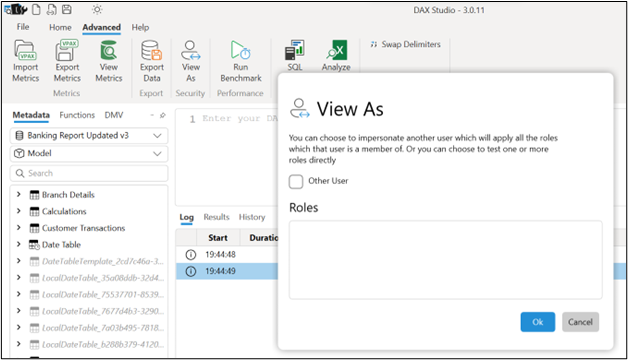Analyzing The Dax: The Interplay Of Politics And Economics In Germany

Table of Contents
Political Stability and Investor Confidence
Political stability is paramount for a strong DAX. A stable government fosters predictable policy-making, encouraging long-term investments. Uncertainty, on the other hand, can lead to volatility and decreased investor confidence, directly impacting the DAX's performance. The German stock market, like all markets, thrives on predictability.
-
Impact of coalition governments on economic decisions: Germany's frequent coalition governments can sometimes lead to slower decision-making processes compared to single-party governments. Negotiating compromises between coalition partners can delay crucial economic reforms, creating uncertainty in the market and potentially impacting the DAX negatively.
-
The role of the Bundesbank (German central bank) in maintaining economic stability: The Bundesbank plays a critical role in managing inflation and maintaining monetary stability. Its actions, such as interest rate adjustments, directly influence the DAX. A strong and independent Bundesbank is vital for investor confidence.
-
Effects of political uncertainty (e.g., elections, potential coalition collapses) on market volatility: Periods leading up to elections or potential government collapses often see increased market volatility. Investors become hesitant, leading to price fluctuations in the DAX as they await clarity on future policies. For example, the period leading up to the 2017 German federal election saw increased volatility in the DAX.
Government Policies and Economic Growth
Government fiscal and monetary policies significantly influence the DAX. Tax reforms, infrastructure spending, and industrial policies all directly affect corporate profits and thus, the index. A government's economic strategy is mirrored in the DAX's performance.
-
Impact of government subsidies and incentives on specific sectors (e.g., renewable energy, automotive): Government support for specific industries, such as subsidies for renewable energy companies or incentives for electric vehicle production, can positively impact the DAX by boosting the performance of related companies.
-
Analysis of the effect of taxation on corporate earnings and investment decisions: Corporate tax rates significantly influence company profitability and investment decisions. Lower corporate taxes can encourage investment and boost the DAX, while higher taxes can have the opposite effect.
-
The role of EU regulations and policies in shaping the German economy and the DAX: EU regulations impact various sectors within Germany. While some regulations might impose costs on businesses, others may create opportunities, ultimately influencing the DAX's trajectory. For example, EU environmental regulations have pushed German companies to invest more in green technologies.
The Automotive Industry and the DAX
The automotive sector is a cornerstone of the German economy, holding substantial weight within the DAX. Political decisions affecting this industry (emissions regulations, trade policies) have major repercussions. The performance of major automotive companies significantly impacts the overall DAX index.
-
Analysis of the impact of electric vehicle mandates on automotive companies’ stock prices: The shift towards electric vehicles has presented both challenges and opportunities for German automakers. Government mandates and incentives for EVs have influenced stock prices of companies like Volkswagen and BMW, impacting the DAX.
-
Influence of trade disputes (e.g., with the US) on the automotive sector and the DAX: Trade disputes, such as tariffs on automobiles, can negatively affect the export performance of German automakers and, consequently, the DAX.
-
Government support for the automotive industry's transition to sustainable technologies: Government initiatives aiming to support the transition to electric vehicles and sustainable technologies can positively affect the DAX by fostering innovation and growth within the automotive sector.
Geopolitical Factors and External Shocks
Global events, like trade wars or international crises, exert significant pressure on the German economy and the DAX, impacting investor sentiment. The German economy's openness to global trade makes it susceptible to external shocks.
-
The influence of global energy prices on German industries and the DAX: Fluctuations in global energy prices, particularly oil and gas, have a significant impact on German industries and can lead to increased production costs, impacting corporate profitability and the DAX.
-
Impact of international political instability on German exports and investor confidence: Political instability in key trading partners can negatively impact German exports and investor confidence, leading to downward pressure on the DAX.
-
The effect of the war in Ukraine on the German economy and the DAX: The war in Ukraine has had a profound impact on the German economy, affecting energy supplies, inflation, and investor sentiment, subsequently impacting the DAX's performance.
Conclusion
Analyzing the DAX requires a nuanced understanding of the intricate relationship between German politics and its economic performance. Political stability, government policies, the automotive sector's health, and geopolitical factors all play crucial roles in shaping the DAX's trajectory. By carefully considering these interdependencies, investors can gain a more comprehensive perspective on the market and make more informed decisions. Continue your exploration of the DAX and its dynamics to refine your understanding of this important economic indicator. Stay informed about current political and economic developments to effectively analyze the DAX and its future movements.

Featured Posts
-
 Charleston Tennis Pegula Triumphs Over Collins
Apr 27, 2025
Charleston Tennis Pegula Triumphs Over Collins
Apr 27, 2025 -
 Will The Premier League Secure A Fifth Champions League Spot A Comprehensive Look
Apr 27, 2025
Will The Premier League Secure A Fifth Champions League Spot A Comprehensive Look
Apr 27, 2025 -
 20
Apr 27, 2025
20
Apr 27, 2025 -
 Controversy Erupts Hhss Hiring Of Vaccine Skeptic David Geier
Apr 27, 2025
Controversy Erupts Hhss Hiring Of Vaccine Skeptic David Geier
Apr 27, 2025 -
 Leverage And Patience Canadas Approach To Us Trade Negotiations
Apr 27, 2025
Leverage And Patience Canadas Approach To Us Trade Negotiations
Apr 27, 2025
